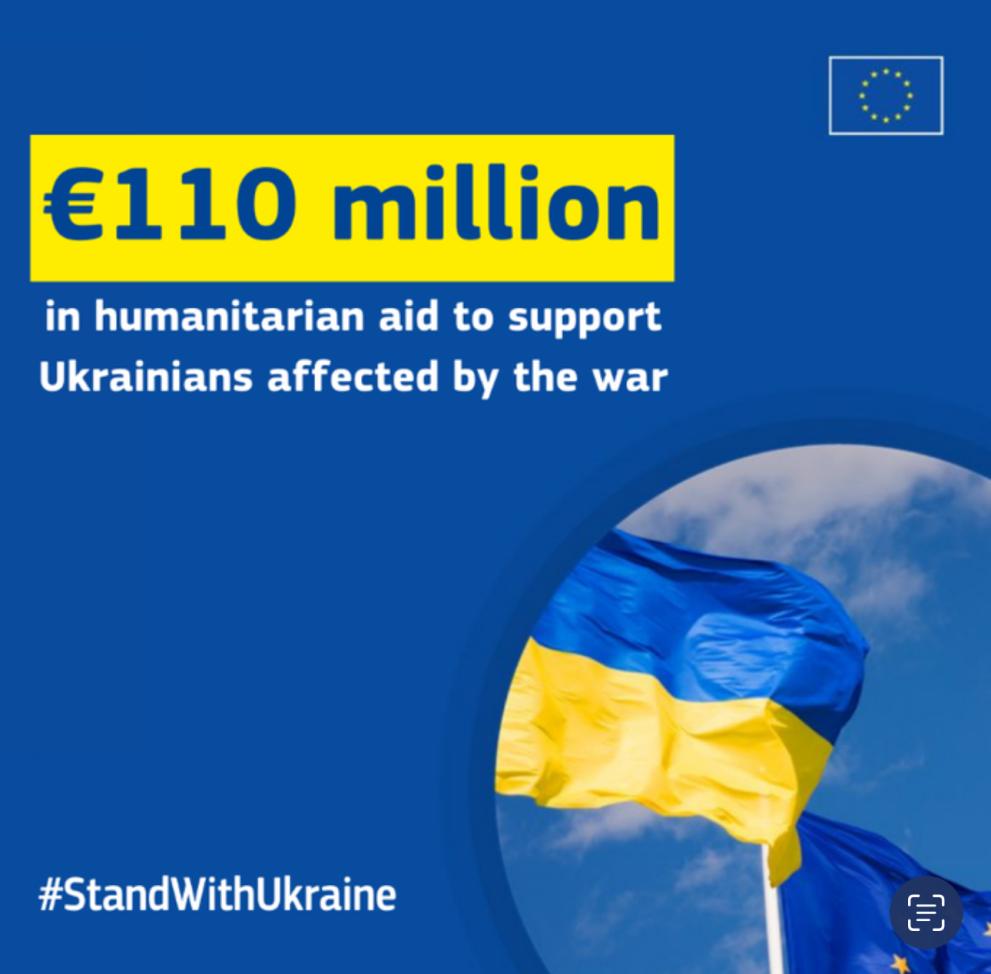
As Russia's war against Ukraine continues, the humanitarian situation in the country remains dire. The onset of winter poses further challenges to the already vulnerable communities impacted by the war.
The Commission is therefore allocating €110 million in humanitarian aid of which €100 million will go to operations in Ukraine and €10 million to support Ukrainian refugees and host communities in Moldova. This new funding will help the EU's humanitarian partners to provide essential services like cash assistance, food, water, shelter, healthcare, psychosocial support and protection.
The latest allocation brings the total for EU humanitarian aid in response to Russia's war in Ukraine to €843 million.
In light of last year's deliberate attacks by Russia on Ukraine's energy infrastructure, the EU is also prioritising emergency energy support by deploying a further 84 power generators from its rescEU strategic reserves. Overall, more than 5,000 power generators have been sent to Ukraine via the EU Civil Protection Mechanism. In addition, the EU is coordinating donations from the private sector to deliver crucial energy equipment to Ukraine.
Background
Russia's war against Ukraine has led the country to the brink of a humanitarian catastrophe. In response, the EU has mobilised all its available resources to provide emergency assistance to Ukraine.
Via the EU Civil Protection Mechanism, all 27 EU countries, plus Norway, Türkiye, North Macedonia, Iceland, and Serbia, have offered in-kind assistance ranging from medical supplies and shelter items to vehicles and energy equipment. So far, 97 000 tonnes of assistance has been delivered to Ukraine via the Mechanism. In addition, the EU has deployed its rescEU strategic reserves to deliver much-needed supplies to Ukraine.
Since February 2022, the European Commission has allocated €843 million for humanitarian aid programmes to help civilians affected by the war in Ukraine. This includes €785 million for Ukraine and €58 million for refugees that have fled to neighbouring Moldova.
EU-funded humanitarian assistance is provided in line with the humanitarian principles of humanity, neutrality, impartiality, and independence. It is delivered through the UN humanitarian agencies, non-governmental organisations, and the International Committee of the Red Cross, as well as many local aid organisations partnering with them.
More information:
EU civil protection and humanitarian aid in Ukraine
EU humanitarian aid in Moldova
Emergency Response Coordination Centre (ERCC)
Channelling aid donations to Ukrainians
Quote(s)
As Russia’s missiles wreak havoc in Ukraine, the humanitarian community must be ready to assist the most vulnerable people affected during harsh winter months. The EU is reinforcing its humanitarian funding in Ukraine with an additional €100 million, while providing €10 million to support Ukrainian refugees and their host communities in Moldova. Our commitment to the people of Ukraine remains as strong as ever.
Janez Lenarčič, Commissioner for Crisis Management - 14/11/2023
Details
- Publication date
- 14 November 2023
- Author
- Directorate-General for Neighbourhood and Enlargement Negotiations
